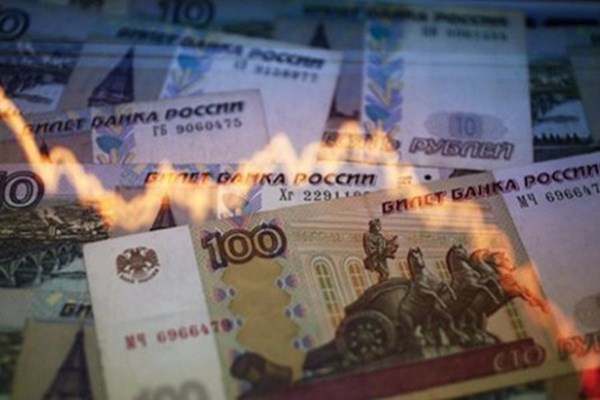US Senate sends the market of Russian government bonds spiraling downward
The market for Russian government debt, which has already experienced two major sell-offs since April, is going into a recession, finanz.ru reports.
The price of Russian debt on the Moscow Exchange has fallen for two consecutive days, in light of news that the US Senate has introduced a bill which would drastically increase the sanctions against Russia. The document, which was put forward by an inter-party group, including republican John McCain and democrat Bob Mendendez, demands that the restrictions on the oil and gas sector be tightened, that Russia be investigated for sponsoring international terrorism, and that foreign investors be banned from participating in any operations with Russian government debt.
The current sanction regime “has been unable to force the Kremlin to change its behavior”, and so “devastating sanctions against Putin’s Russia are needed, until it stops interfering in the US electoral process,” said republican Lindsey Graham from South Carolina.
“Once again the voiced sanction rhetoric has aggravated the situation of Russian securities,” observed Olga Sterina, analyst at Uralsib.
In daily trading on Friday, the most liquid Federal Loan Bond issuances hit lows since June: the 26207 bond, a favorite among non-residents, dropped by 0.18% after falling 0.54% the day before, to 102.57% of nominal.
The Russian Government Bond Index slipped by 0.9 points over two days, and stopped only 0.16 points shy of the 10 month low.
Foreign investors, who hold 1.9 trillion rubles worth of Federal Loan Bonds and control almost 29% of the market, have begun to treat the possibility of sanctions on Russian government debt as a fundamental, said analyst Denis Poryvay from Reiffeisen Bank. This was witnessed in the intense dumping of securities after the Russian aluminum producer Rusal was placed on the sanctions blacklist.
According to the Central Bank of Russia, between April and June non-residents sold $6.7 billion worth of Russian government debt, equivalent to 370 billion rubles.
Russian investors were forced to buy out the market failure, at the expense of the population’s pension savings and possibly also Central Bank funds, Poryvay observed.
If the bill is passed, a new sell-off will follow, senior analyst from the Alpari Group Roman Tkachuk believes.
Although it currently appears that the bill would only affect operations with new Federal Loan Bond issuances, this still can start an all-encompassing the flights of non-residents. “Compliance may not permit them to hold even old issuances,” Porivay explains.
In this case, the Russian government debt market will be under threat of collapse. According to Citigroup’s predictions: the yield on 10-year securities could surge from 7.8% to 11.6% by the end of 2019.
This will increase the cost of loans for the Ministry of Finance and have an adverse effect on the budget. The sell-off will also provoke an outflow of capital, which will in turn weaken the ruble.
